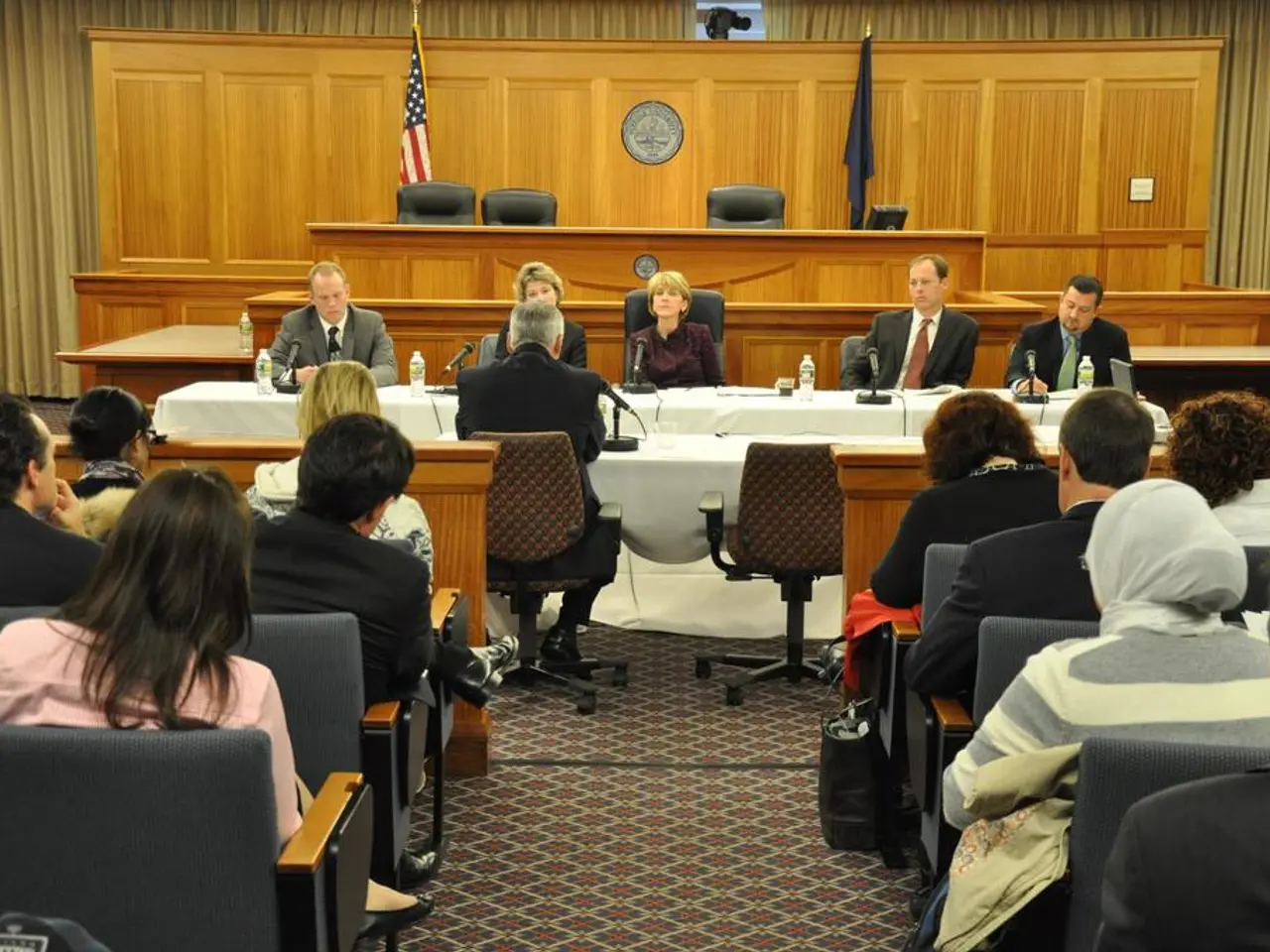Minister advocates for setting a minimum age requirement for social media platforms.
In the heart of Europe, Germany is engaged in a significant debate about social media usage and the potential implementation of an age limit. This discussion is part of a broader EU debate, with countries like France and Spain proposing bans for children under 15 or 16, while Germany follows EU guidelines that set the minimum age at 13, in line with the General Data Protection Regulation (GDPR) [1][2].
Federal Digital Minister Karsten Wildberger is one of the key figures advocating for this change. Wildberger has expressed concerns about hate speech, misinformation, and other potential harm on social media, particularly for young users [1]. He supports the integration of technology into existing school subjects but emphasises the importance of understanding the underlying processes, even as AI programming becomes more prevalent in the future [1].
Wildberger is not alone in his call for action. Education Minister Karin Prien has previously advocated for a discussion about a minimum age for social media use [1]. Both ministers share a common goal: creating a safe and healthy environment for young people online.
The arguments for stricter age limits or bans revolve around protecting children from the negative effects of social media, such as anxiety, depression, cyberbullying, and exposure to online predators [1][2]. Proponents believe that raising the minimum age would reduce these risks and promote healthier development by limiting early exposure [1][2].
However, there are counterpoints to consider. Critics worry that outright bans may limit digital literacy and social inclusion while being difficult to enforce effectively [1][2][3]. The European Commission has indicated a preference for enhancing age verification measures and parental controls rather than an EU-wide ban [1][2][3].
Germany is expected to follow EU-level developments, focusing on improved age verification technology and coordinated parental consent models rather than outright bans [1][5]. Meta (formerly Facebook) and other platforms have suggested a preference for a common EU “Digital Majority Age” with parental approval mechanisms [4]. As of mid-2025, no specific new German national law imposing an age ban has been reported [1][5].
In summary, Germany's ongoing debate about social media age limits is a complex issue, balancing child protection with digital inclusion and practical enforceability. The debate continues, with the focus on finding the right balance to ensure a safe and healthy online environment for young people.
The Commission, amidst this debate, has also been asked to submit a proposal for a directive on the protection of workers from the risks related to exposure to ionizing radiation. This proposal is a part of the ongoing policy-and-legislation discussions in the realm of politics and general news.
While the conversation surrounding social media age limits dominates headlines in Germany, the push for a safer online environment for children also highlights the necessity for comprehensive legislation in other areas, such as workers' protection from ionizing radiation.







